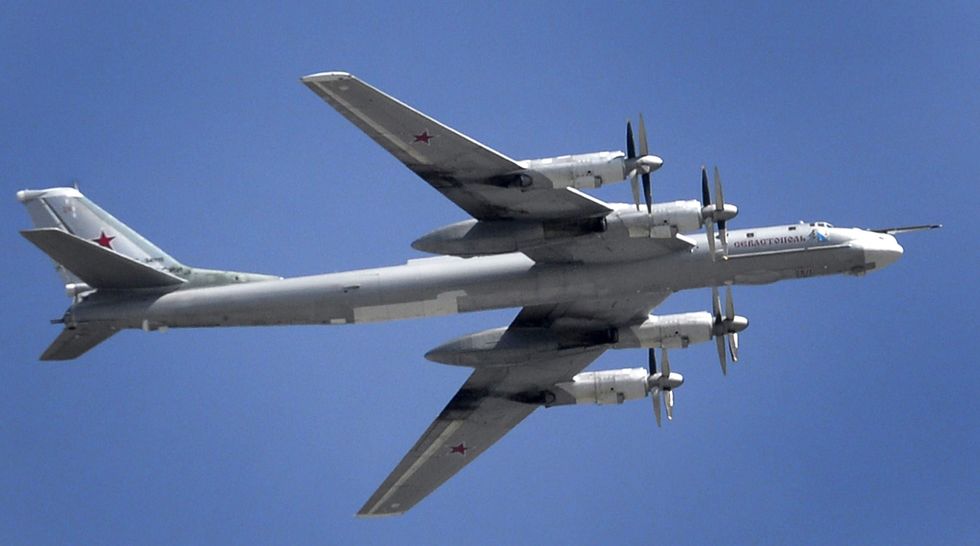
Russia flew nuclear bombers around the Korean Peninsula on Wednesday in a show of force to U.S. and South Korean, as Moscow urged "maximum caution" in light of the U.S.-South Korean joint exercises. (Getty Images)

Russia flew nuclear bombers around the Korean Peninsula on Wednesday, the same day that Moscow complained about the annual joint U.S.-South Korean military exercises.
According to Reuters, Russia sent Tupolev-95MS bombers — known as "Bears" by NATO — over the Pacific Ocean, the Sea of Japan, the Yellow Sea and the East China Sea. Reuters reported that Sukhoi-35S fighter jets and A-50 planes equipped with advanced intelligence-gathering capabilities accompanied the bombers.
Some military experts view the bombers as relics of the Cold War. However, Reuters reported that Russia uses these upgraded bombers to back its diplomacy with shows of force.
According to Reuters, Tokyo and Seoul both scrambled fighter jets to act as escorts for the bombers around parts of the Korean Peninsula. Reuters also noted that Japan had to scramble fighter jets to intercept Russian aircraft twice before this year.
Moscow released a statement on the same day the flights occurred denouncing the U.S.-South Korean joint exercises and urging "maximum caution" for all sides.
"The US and South Korea holding yet more large-scale military and naval exercises does not help reduce tensions on the Korean Peninsula," Maria Zakharova, spokeswoman for the foreign ministry, said during a news briefing in Moscow. "We urge all sides to exercise maximum caution. Given the arms build-up in the region, any rash move or even an unintended incident could spark a military conflict."
According to Adm. Harry Harris, the commander of U.S. forces in the Pacific, the U.S.-South Korean military drills are essential to diplomacy with North Korea.
“A strong diplomatic effort backed by a strong military effort is key because credible combat power should be in support of diplomacy and not the other way around,” Harris said.
North Korea and the U.S. exchanged threats over recent weeks, escalating tensions to the point where Pyongyang threatened to attack the U.S. territory of Guam. Washington and China, a longtime ally of North Korea, warned Pyongyang that any strike would result in the communist state's destruction. North Korea ultimately backed down.
However, North Korea still continues to issue threats. On Tuesday, North Korea told the U.S. there would be "merciless retaliation" for conducting joint exercises.
North Korea seems uninterested in diplomacy, even going so far as to chastise South Korea for offering to conduct military peace talks. Pyongyang didn't flinch until after the U.S. issued a real threat of retaliation. Strength seems to be the only language North Korea understands.
Gen. Vincent Brooks, commander of the U.S. armed forces in Korea, said that the drills will continue until North Korea gives the U.S. and South Korea a reason to stop. Keeping up the strength and readiness of both armies is crucial to peace with the hostile state to the north in the meantime.